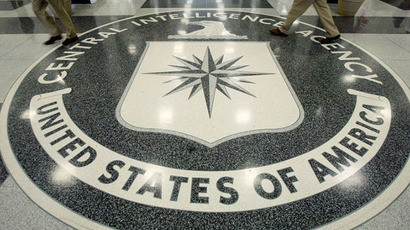Ex-CIA officer to be extradited to Italy for role in Egyptian cleric kidnapping

A former CIA officer, now residing in Portugal, faces extradition to Italy after her alleged involvement in the kidnapping of an Egyptian cleric, Hassan Mustafa Osama Nasr, otherwise known as Abu Omar, in Milan 13 years ago, The Washington Post reported.
An Italian court convicted Sabrina De Sousa, 60, in absentia along with 26 other Americans, sentencing her to four years in prison. In 2009, De Sousa avoided potential imprisonment by leaving Italy before the trial started.
However, extradition talks began after De Sousa moved to Portugal last spring to be closer to her relatives.
Local police detained the former CIA agent on a European arrest warrant at the Lisbon airport in October.
A key development in the case happened this week, when Portugal’s highest court upheld the lower courts’ ruling that local authorities did not violate the constitution when detaining De Sousa. She is now scheduled to be extradited to Italy on May 4.
One of the conditions of the ruling is that De Sousa be given another trial and a chance to appeal her sentence in Italy since she was sentenced in absentia.
However, De Sousa is not sure that Italian authorities will grant her a new trial, and fears that she will simply be sent straight to jail to start serving her four-year sentence.
“It’s kind of a surreal situation,” De Sousa told The Washington Post.“I’ve spent years wanting to counter the charges against me. Right now, I want to know what happens, step by step, in Italy.”
Former CIA chief historian Benjamin Fischer described De Sousa’s case as “unprecedented,” according to the Post.
De Sousa holds dual Portuguese and American citizenship. She admitted that flying to Europe did leave her more vulnerable to arrest.
“If I was a natural-born US citizen and my entire family lived in Kansas, for example, then maybe I wouldn’t need to worry about going to Europe again,” De Sousa said.
Terror suspect Egyptian cleric Nasr was kidnapped from a Milan street in 2003. He was transported to Egypt by the CIA as part of their extraordinary rendition program, where he was allegedly tortured for seven months and eventually released.
It was only in 2005 when reports of Italian government investigating CIA agents involved in the kidnapping came to light.
Evidence discovered by Italian law enforcement reportedly embarrassed the CIA’s spy craft skills.
Meanwhile, De Sousa was unable to persuade her employer to grant her immunity and ended up resigning from the CIA in 2009.
De Sousa asserts she played only a minor role in the abduction of the cleric, translating for CIA officers in Italy in early 2002 before the kidnapping took place.
“But at that point, rendition was just a concept,” she said, adding that Nasr’s name was not even mentioned during the talks.



